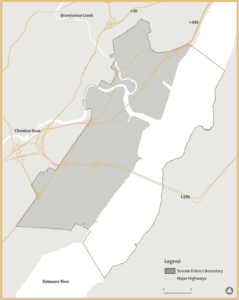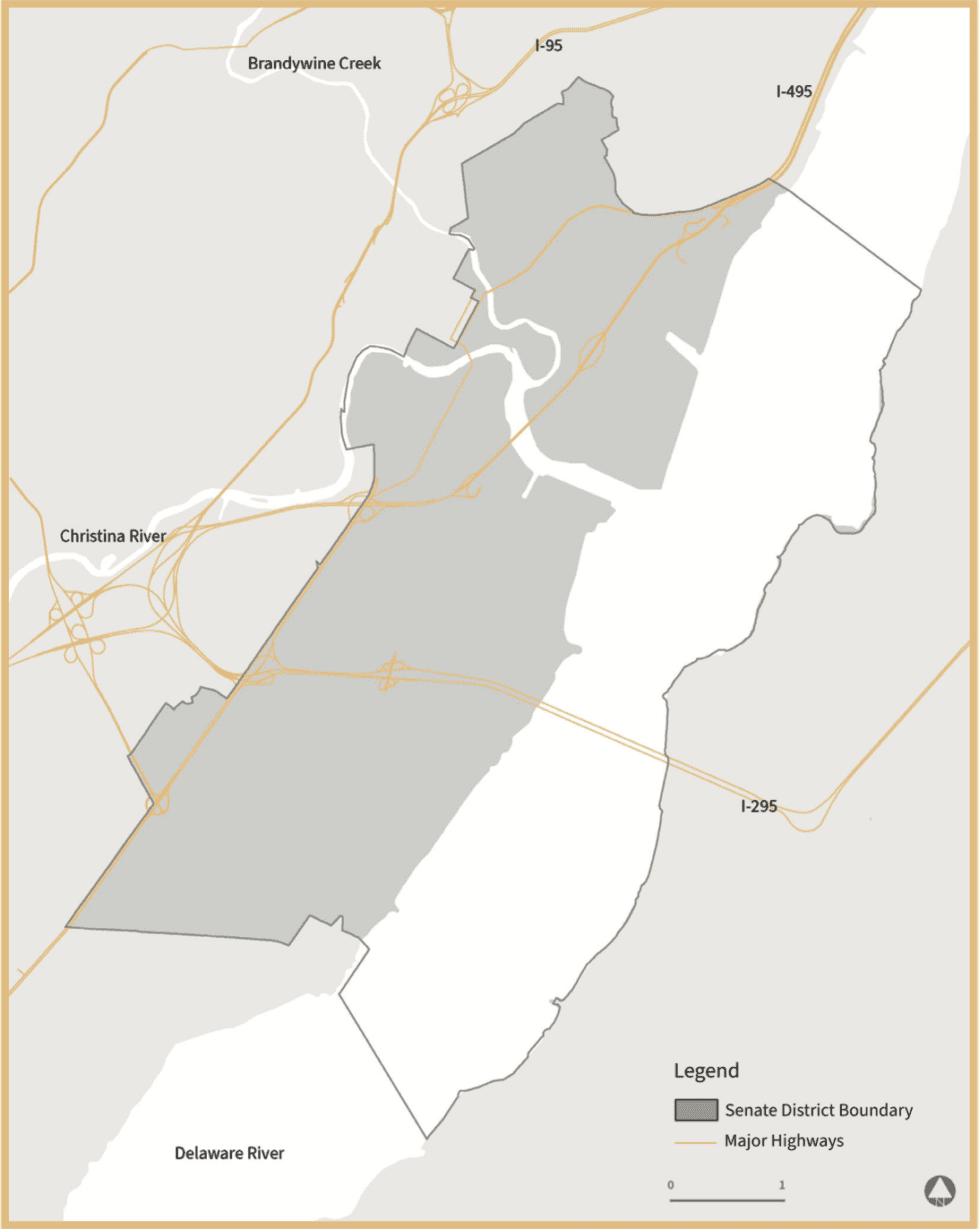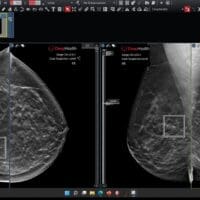

Business opportunities in the 2nd Senate District, also known as the Three Rivers area of Wilmington, will be spotlighted in a Wednesday symposium hosted by Sen. Darius Brown.
Companies looking to grow a business in the MidAtlantic need look no farther than Wilmington’s Three Rivers region for available real estate and for a community that will support a business and help it grow.
That’s the message Sen. Darius Brown, D-Wilmington, will highlight Wednesday, Nov. 1, in his Opportunity LIVES Here symposium at the Chase Center on the Riverfront.
His 2nd Senate District, defined by the Brandywine, Christina and Delaware rivers and including the Route 9 corridor and the Wilmington Riverfront East, has the best access to property, people, government, finance and transportation along roads, water, rail and air, he said in a recent interview.


Darius Brown
About 200 people are expected to attend the 9 a.m. to noon event. It’s free and expected to include Delaware politicians, national influencers, investors, developers and members of the National Association of Real Estate Brokers as part of that association’s “60-City Black Wealth Tour.”
The association will offer a panel on how to help close the black wealth gap by creating more home ownership in minority communities such as the 2nd Senate District as well as through property investment and starting a business.
Other panels will include developing the area, creating new opportunities, lifting the community and establishing sustainable economic growth.
He pointed to the success that Reach Riverside has had in helping transform housing and more in the last five years.
Brown also wants to draw attention to how the transformation of the Wilmington Riverfront from polluted wasteland to vibrant living and entertainment center is being replicated by Claymont, Delaware City, Milford and other First State communities.
“We hear of investments that are being made in downtown, and oftentimes neighborhoods feel like all the investment is being made there and none has been made in the neighborhood,” Brown said.
He hopes to make the case that investment and development does not have to be mutually exclusive.
“We can do both well, and so Opportunity LIVES here is really about spotlighting and leveraging our strengths, which are the gateways and corridors north of the financial sector of the city and south of the financial sector of the city that we need to drive investment into so that neighborhoods can share in that prosperity,” he said.
Any company or business that chooses the Three Rivers region will reap the benefit of $30 million Brown said he has helped get invested in the area’s infrastructure. Some of that is in Riverfront East, the massive $100 million overhaul along the Christina River designed to mirror Riverfront West.
Brown wants to encourage a range of businesses in the Three Rivers region, including small and mid-size firms, to consider the area including banking, insurance and the fintech industry.
They will find a community willing to work in those businesses, he said.
Three Rivers industrial parks
He hopes to interest more manufacturing and bioscience companies in the area’s industrial parks, including River Edge, Bolden Circle and Twin Span along Route 9 and adjacent to I-295, but also at sites along Governor Printz Boulevard as well as the historic 7th Street Peninsula.
“I want to make sure that River’s Edge, Bolden Circle and Twin Spans as industrial parks are as competitive as the Star Campus at the University of Delaware,” Brown said.
His district is also much convenient to the area’s big cities like Baltimore, Washington, D.C., Philadelphia, New York City and more, he said.
RELATED STORY: Kalmar Nyckel center unveils painting of ship’s last battle
The 7th Street Peninsula is also home to the Kalmar Nyckel, Delaware’s tall ship, its education center and the next-door Challenge Program, a nonprofit that teaches woodworking and construction skills with contracts to rehabilitate low-income housing for local government and non-profit agencies.
Brown wants entrepreneurs to start or expand their businesses in the Three Rivers region and the Opportunity LIVES Here program will point out financial help, such as the Delaware Community Investment Venture Fund.
That fund takes $2.5 million of regulatory fees that the banking industry pays and leverages them to provide financial services and access to capital for minority-owned businesses.
“I look forward to those businesses wanting to call Delaware home,” he said. “Instead of businesses coming to us, we’re going to businesses. We’re going fishing and we’re looking forward to catching some fish.”


Betsy Price is a Wilmington freelance writer who has 40 years of experience.
Share this Post








